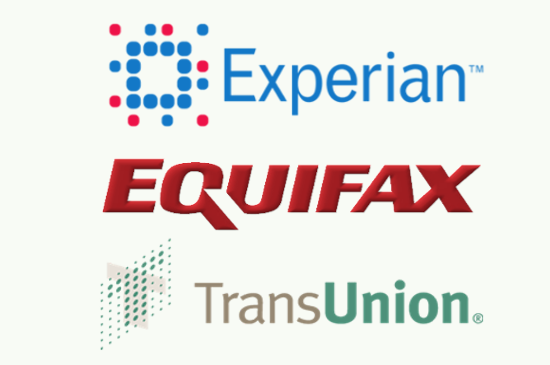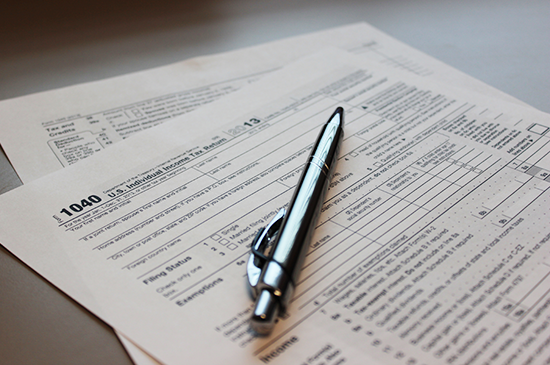How to Get Your Free Credit Report
Get Your Free Credit Report
Federal Law requires each of the three nationwide consumer reporting companies – Equifax, Experian and TransUnion to provide you with a free copy of your credit report, at your request, once every 12 months.
A credit report is used by a variety of companies to evaluate your application for credit. It is up to you to make sure your credit report is correct. The three nationwide consumer reporting (more…)
Possible Reasons for a Missing Tax Refund
Please re-check the account number listed on your tax return or stored in your tax software. Make sure that the bank account is OPEN and ACTIVE (not dormant or closed) and that you have checked the appropriate box on your return, checking or savings.
To Build or Not to Build?
Tami Spencer – Consumer Loan Officer
Tami is a long time employee at State Bank of Southern Utah. 2014 starts her 14th year with State Bank, with six years specializing in lending. Tami was born and raised in Cedar City, attended Southern Utah University and is married with four children. Her favorite part about working at State Bank is the great customers and employees she works with everyday. As a lifelong Cedar City resident Tami understands the needs of those living in southern Utah and is willing to assist with any consumer lending needs.
Branch: Cedar North Main
Phone: (435)865-2315
E-mail: tspencer@sbsu.com
Prevent a Holiday Spending Hangover
State Bank is kicking off the 2012 holiday shopping season with tips to avoid a post-holiday credit hangover.
A National Retail Federation survey released earlier this month showed consumers will spend an average of $749.51 on gifts and holiday goodies. We spent $740.57 per person last year, the group said.
Here’s how that spending breaks down:
— $421.82 on children, parents and relatives
— $75.13 on friends
— $23.48 on co-workers
— $28.13 on others, including pets
— $100.76 on food and candy
— $28.66 greeting cards
— $19.55 on flowers
— $51.99 on decorations
All in all, the federation is predicting a $586.1 billion haul from the holidays.
Keep in mind that January bills are only a couple of months away. If you’re not budgeting for your holiday purchases, you’ll find yourself bringing in the New Year with last year’s debt.
- Create a budget and stick to it. Set a dollar amount based on what you can afford this holiday season. Be sure to include a cushion for unexpected expenses.
- Make a list. Write down the names of the people you plan to buy gifts for and how much you can afford to spend. Don’t forget expenses like wrapping paper, cards and postage.
- Bake some cookies. If you can’t afford to buy gifts for everyone on your list, bake some holiday goodies and wrap them with a bow. Handmade gifts are a special way to say ‘Happy Holidays’ without overspending. Be sure to include these costs in your budget.
- Use credit wisely. Your credit card balance shouldn’t be a complete surprise when you open your statement in January. Avoid going into debt for gifts.
- Save your receipts. Keep track of your expenses and add them up weekly to be sure you’re sticking to your budget. If you’re getting close to your spending limit, reevaluate your list and bake more cookies!
- Shop around. Start your holiday shopping early to give yourself time to comparison shop. Take time to do some research before you hit the stores by going online or looking at your local newspaper circulars.
Debt to Income Ratio
Courtesy of bankrate.com
Your debt-to-income ratio can be a valuable number — some say as important as your credit score. It’s exactly what it sounds: the amount of debt you have as compared to your overall income.
Lenders look at this ratio when they are trying to decide whether to lend you money or extend credit. A low DTI shows (more…)
How to Decide Whether to Buy or to Rent
It may be a “buyer’s market” in southern Utah but current fluctuations in the economy and the housing market can complicate the decision whether to buy a home or rent.
How do you know what’s right for you? State Bank recommends that potential buyers ask themselves several key questions before making this important decision:
- Know your total costs including taxes, insurance and upkeep. If your total costs are more than 30 percent of your gross monthly income, you may be better off renting.
- What other debt do I have? Total rent or mortgage payments plus credit obligations should not exceed 35 to 40 percent of gross monthly income.
- The best interest rates go to people with the best credit scores, so what’s your credit score? If your score is low, you may want to delay buying a home until you can improve your score.
- How many years will I stay in the home? Generally, you need to be in your home for 5 to 7 years to make owning a home worth it. The longer you plan to live someplace, the more sense it makes to buy.
Bottom line: Calculate your home ownership costs vs. rental costs, and go from there.
FDIC Overview
HSA Accounts and Debit Cards
What is an HSA?
A health savings account (HSA) is a tax-favored savings account created for the purpose of paying medical expenses.
- Tax-deductibleContributions to the HSA are 100% deductible (up to the legal limit) — just like an IRA.
- Tax-freeWithdrawals to pay qualified medical expenses are never taxed.
- Tax-deferredInterest earnings accumulate tax-deferred, and if used to pay qualified medical expenses, are tax-free.
- HSA money is yours to keepUnlike a flexible spending account (FSA), unused money in your HSA isn’t forfeited at the end of the year; it continues to grow, tax-deferred
How does an HSA Plan Work?
An HSA works in conjunction with high deductible health insurance.Your HSA dollars can be used to help pay the health insurance deductible and any qualified medical expenses, including those not covered by the health insurance, like dental and vision care.
Any funds you withdraw for non-qualified medical expenses will be taxed at your income tax rate, plus 10% tax penalty.
Once you meet your calendar-year deductible, the health insurance pays remaining covered expenses in accordance with the terms and conditions of your particular plan. Some plans pay 100% of covered expenses after the calendar-year deductible is met.
How do I get an HSA Debit Card?
An HSA Debit card allows you the convenience of spending money from your HSA account through the use of a card. An HSA debit card can only be used at a healthcare facility or merchant. Withdrawal restrictions are also waived on HSA debit cards.
Visit any State Bank branch to fill out an application for an HSA debit card. Please visit www.sbsu.com for more information regarding the State Bank HSA Account.
About Us

Hometown banking was established in southern Utah with the opening of State Bank of Southern Utah in 1957.
Hometown banking is important because people who live and work in southern Utah make the decisions. Bank employees and officers understand the banking needs of area residents because they are affected by the same economic climate. Find out what hundreds already know - hometown banking is better.
Archives
- June 2015
- May 2015
- January 2015
- December 2014
- October 2014
- September 2014
- July 2014
- June 2014
- May 2014
- April 2014
- March 2014
- February 2014
- January 2014
- November 2013
- October 2013
- August 2013
- July 2013
- June 2013
- March 2013
- February 2013
- January 2013
- December 2012
- November 2012
- October 2012
- September 2012
- August 2012
- July 2012












The Fair Credit Reporting Act (FCRA) requires each of the nationwide credit reporting companies — Equifax, Experian, and TransUnion — to provide you with a free copy of your credit report, at your request, once every 12 months. The FCRA promotes the accuracy and privacy of information in the files of the nation’s credit reporting companies. The Federal Trade Commission (FTC), the nation’s consumer protection agency, enforces the FCRA with respect to credit reporting companies.
A credit report includes information on where you live, how you pay your bills, and whether you’ve been sued or have filed for bankruptcy. Nationwide credit reporting companies sell the information in your report to creditors, insurers, employers, and other businesses that use it to evaluate your applications for credit, insurance, employment, or renting a home.
Here are the details about your rights under the FCRA, which established the free annual credit report program.
Q: How do I order my free report?
The three nationwide credit reporting companies have set up a central website, a toll-free telephone number, and a mailing address through which you can order your free annual report.
To order, visit annualcreditreport.com, call 1-877-322-8228. Or complete the Annual Credit Report Request Form and mail it to: Annual Credit Report Request Service, P.O. Box 105281, Atlanta, GA 30348-5281. Do not contact the three nationwide credit reporting companies individually. They are providing free annual credit reports only through annualcreditreport.com, 1-877-322-8228 or mailing to Annual Credit Report Request Service.
You may order your reports from each of the three nationwide credit reporting companies at the same time, or you can order your report from each of the companies one at a time. The law allows you to order one free copy of your report from each of the nationwide credit reporting companies every 12 months.
A Warning About “Imposter” Websites
Only one website is authorized to fill orders for the free annual credit report you are entitled to under law — annualcreditreport.com. Other websites that claim to offer “free credit reports,” “free credit scores,” or “free credit monitoring” are not part of the legally mandated free annual credit report program. In some cases, the “free” product comes with strings attached. For example, some sites sign you up for a supposedly “free” service that converts to one you have to pay for after a trial period. If you don’t cancel during the trial period, you may be unwittingly agreeing to let the company start charging fees to your credit card.
Some “imposter” sites use terms like “free report” in their names; others have URLs that purposely misspell annualcreditreport.com in the hope that you will mistype the name of the official site. Some of these “imposter” sites direct you to other sites that try to sell you something or collect your personal information.
Annualcreditreport.com and the nationwide credit reporting companies will not send you an email asking for your personal information. If you get an email, see a pop-up ad, or get a phone call from someone claiming to be from annualcreditreport.com or any of the three nationwide credit reporting companies, do not reply or click on any link in the message. It’s probably a scam. Forward any such email to the FTC at spam@uce.gov.
Q: What information do I need to provide to get my free report?
A: You need to provide your name, address, Social Security number, and date of birth. If you have moved in the last two years, you may have to provide your previous address. To maintain the security of your file, each nationwide credit reporting company may ask you for some information that only you would know, like the amount of your monthly mortgage payment. Each company may ask you for different information because the information each has in your file may come from different sources.
Q: Why do I want a copy of my credit report?
A: Your credit report has information that affects whether you can get a loan — and how much you will have to pay to borrow money. You want a copy of your credit report to:
Q: How long does it take to get my report after I order it?
A: If you request your report online at annualcreditreport.com, you should be able to access it immediately. If you order your report by calling toll-free 1-877-322-8228, your report will be processed and mailed to you within 15 days. If you order your report by mail using the Annual Credit Report Request Form, your request will be processed and mailed to you within 15 days of receipt.
Whether you order your report online, by phone, or by mail, it may take longer to receive your report if the nationwide credit reporting company needs more information to verify your identity.
Q: Are there any other situations where I might be eligible for a free report?
A: Under federal law, you’re entitled to a free report if a company takes adverse action against you, such as denying your application for credit, insurance, or employment, and you ask for your report within 60 days of receiving notice of the action. The notice will give you the name, address, and phone number of the credit reporting company. You’re also entitled to one free report a year if you’re unemployed and plan to look for a job within 60 days; if you’re on welfare; or if your report is inaccurate because of fraud, including identity theft. Otherwise, a credit reporting company may charge you a reasonable amount for another copy of your report within a 12-month period.
To buy a copy of your report, contact:
Q: Should I order a report from each of the three nationwide credit reporting companies?
A: It’s up to you. Because nationwide credit reporting companies get their information from different sources, the information in your report from one company may not reflect all, or the same, information in your reports from the other two companies. That’s not to say that the information in any of your reports is necessarily inaccurate; it just may be different.
Q: Should I order my reports from all three of the nationwide credit reporting companies at the same time?
A: You may order one, two, or all three reports at the same time, or you may stagger your requests. It’s your choice. Some financial advisors say staggering your requests during a 12-month period may be a good way to keep an eye on the accuracy and completeness of the information in your reports.
Q: What if I find errors — either inaccuracies or incomplete information — in my credit report?
A: Under the FCRA, both the credit reporting company and the information provider (that is, the person, company, or organization that provides information about you to a consumer reporting company) are responsible for correcting inaccurate or incomplete information in your report. To take full advantage of your rights under this law, contact the credit reporting company and the information provider.
1. Tell the credit reporting company, in writing, what information you think is inaccurate.
Credit reporting companies must investigate the items in question — usually within 30 days — unless they consider your dispute frivolous. They also must forward all the relevant data you provide about the inaccuracy to the organization that provided the information. After the information provider receives notice of a dispute from the credit reporting company, it must investigate, review the relevant information, and report the results back to the credit reporting company. If the information provider finds the disputed information is inaccurate, it must notify all three nationwide credit reporting companies so they can correct the information in your file.
When the investigation is complete, the credit reporting company must give you the written results and a free copy of your report if the dispute results in a change. (This free report does not count as your annual free report.) If an item is changed or deleted, the credit reporting company cannot put the disputed information back in your file unless the information provider verifies that it is accurate and complete. The credit reporting company also must send you written notice that includes the name, address, and phone number of the information provider.
2. Tell the creditor or other information provider in writing that you dispute an item. Many providers specify an address for disputes. If the provider reports the item to a credit reporting company, it must include a notice of your dispute. And if you are correct — that is, if the information is found to be inaccurate — the information provider may not report it again.
Q: What can I do if the credit reporting company or information provider won’t correct the information I dispute?
A: If an investigation doesn’t resolve your dispute with the credit reporting company, you can ask that a statement of the dispute be included in your file and in future reports. You also can ask the credit reporting company to provide your statement to anyone who received a copy of your report in the recent past. You can expect to pay a fee for this service.
If you tell the information provider that you dispute an item, a notice of your dispute must be included any time the information provider reports the item to a credit reporting company.
Q: How long can a credit reporting company report negative information?
A: A credit reporting company can report most accurate negative information for seven years and bankruptcy information for 10 years. There is no time limit on reporting information about criminal convictions; information reported in response to your application for a job that pays more than $75,000 a year; and information reported because you’ve applied for more than $150,000 worth of credit or life insurance. Information about a lawsuit or an unpaid judgment against you can be reported for seven years or until the statute of limitations runs out, whichever is longer.
Q: Can anyone else get a copy of my credit report?
A: The FCRA specifies who can access your credit report. Creditors, insurers, employers, and other businesses that use the information in your report to evaluate your applications for credit, insurance, employment, or renting a home are among those that have a legal right to access your report.
Q: Can my employer get my credit report?
A: Your employer can get a copy of your credit report only if you agree. A credit reporting company may not provide information about you to your employer, or to a prospective employer, without your written consent.